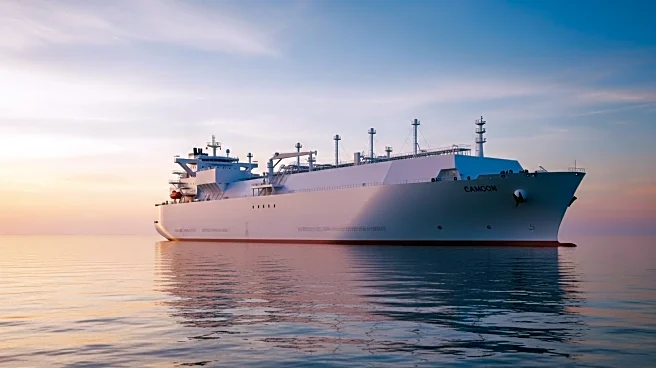What's Happening?
Peter Keller, chairman of SEA-LNG, emphasizes the importance of LNG in the maritime industry's decarbonization efforts. He argues that alternative fuels are not yet available in sufficient quantities, making LNG a viable option due to its established safety record and energy density. Keller highlights the need for practical solutions and realistic leadership to achieve decarbonization, drawing parallels to the transformative impact of containerization in the shipping industry.
Why It's Important?
The maritime industry faces significant challenges in reducing emissions and transitioning to cleaner fuels. LNG offers a practical solution with existing infrastructure and safety standards. Its adoption could lead to immediate reductions in local emissions and carbon output. However, the industry must address questions about the availability and energy density of alternative fuels, as well as the investment required for new bunkering infrastructure. Keller's insights underscore the need for a focused approach to decarbonization.
What's Next?
The maritime industry must evaluate the feasibility of alternative fuels like methanol and ammonia, considering their energy density and impact on cargo capacity. Stakeholders need to invest in infrastructure and technology to support the transition to cleaner fuels. Regulators and industry leaders must collaborate to establish clear standards and pathways for decarbonization. The focus should remain on practical solutions that can be implemented without disrupting current operations.
Beyond the Headlines
The discussion around LNG and alternative fuels raises broader questions about the maritime industry's role in global emissions reduction. The transition to cleaner fuels requires balancing economic viability with environmental responsibility. The industry's decisions will have long-term implications for global trade, port communities, and environmental sustainability. Keller's advocacy for LNG highlights the need for informed decision-making and strategic planning in the face of evolving energy demands.










